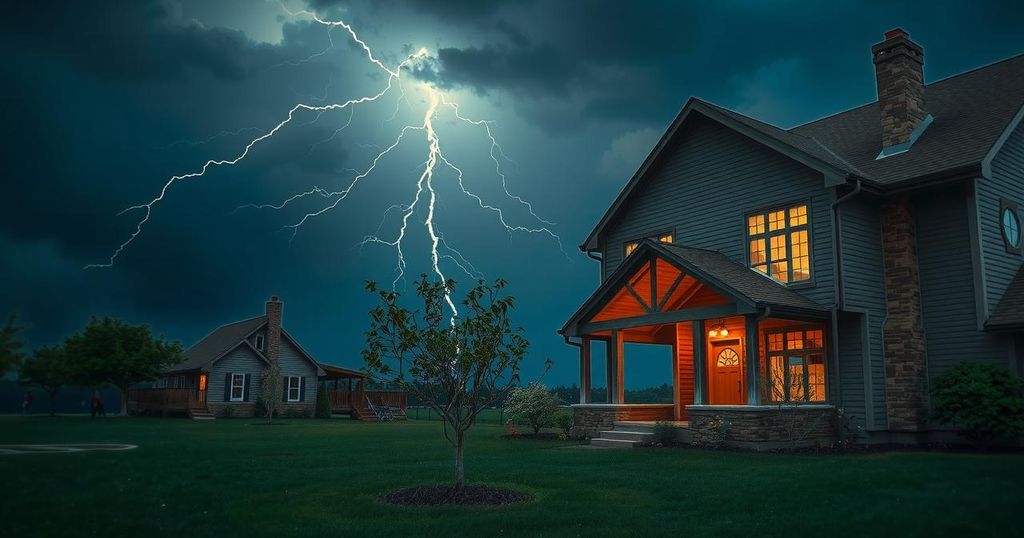Preparing for Hurricane Season: Safeguard Your Family Against Storms
Hurricane Helene’s aftermath and forecasts of future storms signal a pressing need for family preparedness as NOAA anticipates an unusually active hurricane season. With rising ocean temperatures fueling more intense hurricanes, experts emphasize proactive safety measures and elevated awareness of potential flooding risks, regardless of the storm’s category. Effective disaster resources, such as the FEMA app and emergency preparedness websites, are crucial for families aiming to stay safe during these extreme weather events.
As severe weather events multiply, the importance of preparedness becomes increasingly apparent. Following Hurricane Helene’s destructive path through the South, the toll on human life and property continues to escalate. Reports indicate that further storms are intensifying in the Atlantic, raising concerns that such extreme weather may outpace previous expectations of rarity. This hurricane season, conditions along the Eastern Seaboard have been unprecedented, with sea temperatures at record highs. The National Oceanic and Atmospheric Administration (NOAA) predicts an alarming total of 24 named storms with seven potentially escalating into major hurricanes. Already, eight named storms have occurred, with the hurricane season extending until November 30. Experts emphasize the critical need for families to stay informed and ready to protect themselves. Notably, Hurricane Beryl established a new record as the earliest category five hurricane ever documented in the Atlantic. Climate change plays a pivotal role in this phenomenon, with rising ocean temperatures expected to intensify hurricane activity. University of Rhode Island Oceanographer Isaac Ginis elaborated on this concern, stating, “Even if we stop emitting carbon dioxide today, it will take 10, 15 years for the climate to get back to normal.” This highlights the pressing necessity for effective measures to mitigate carbon emissions to avoid long-term detrimental impacts on global temperatures. Forecasters harness advanced technologies to improve the accuracy of storm predictions, linking warm ocean surfaces to stronger hurricanes while recognizing that storms can also cool the waters beneath them. Ginis noted that it is not solely the major hurricanes that pose threats; even marginally lower category storms can cause catastrophic flooding. He remarked, “Six inches of water can knock down an adult or two feet of moving water can essentially sweep away a vehicle.” This vital information underscores the importance of being aware of the risks associated with flooding, regardless of a storm’s category. To enhance your family’s safety during hurricane season, it is advisable to prepare in advance, remain indoors during the storm, and stock sufficient supplies for the aftermath. Ginis insisted, “There is no reason and justification to die during the storm these days. They just need to heed the warning and listen to the forecasters.” The FEMA App is also an invaluable resource, offering personalized disaster readiness information tailored to individual circumstances, ensuring that families can effectively navigate any natural disasters they may face. For further guidance on storm preparedness, individuals may refer to http://www.ready.gov/ .
The article discusses the escalating frequency and intensity of hurricanes as a result of rising ocean temperatures due to climate change. It emphasizes the critical need for families to prepare for severe storms, particularly as recent data from NOAA predicts an unusually active hurricane season. With nine recorded storms so far and forecasts indicating several more may come, public safety and preparedness measures are key elements in mitigating the impacts of these weather events. Insights from oceanographer Isaac Ginis provide scientific grounding to the assertions regarding climate change and hurricane activity, making a case for urgent action on carbon emissions to stabilize global temperatures.
In summary, the article highlights the urgent need for preparedness amidst an increasingly hazardous hurricane season. With significant predictions from NOAA and alarming observations from climate experts, families are urged to take proactive measures to safeguard their lives and property during storms. The collaboration of advanced forecasting technology with routine preparation is crucial in mitigating the impact of hurricanes on communities. As climate change continues to exacerbate weather patterns, education and readiness will play pivotal roles in ensuring safety during natural disasters.
Original Source: www.walb.com




Post Comment